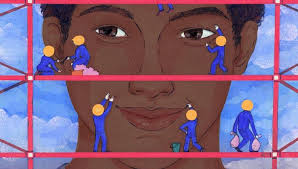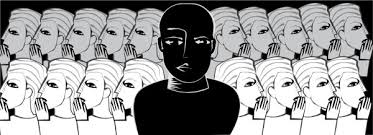
Toward a Hunger Games Society?
Thomas More, the lawyer who became England’s chancellor under the infamous Henry VIII and was later declared a saint, wrote a book called “Utopia” in 1516. It was about a fictitious “perfect” island society. The Greek word, utopia, literally means “no place,” perhaps indicating that More was being satirical about the possibility of such a place ever existing.
Today we have a derived word, “dystopia,” which, according to Wikipedia, also comes from the Greek and literally means “not good place.” The term is now used to describe a seemingly endless parade of modern novels, films and dramas about societies, usually in the future, which are characterized by dehumanization and totalitarianism.
Though the name “dystopia” wasn’t used until recently, the genre has been around for some time in modern literature. I remember reading, for instance, Aldous Huxley’s Brave New World and George Orwell’s 1984 in my youth.
Possibly most responsible for the explosion of interest in dystopian literature and films in recent years are the novels and film, The Hunger Games. The trilogy of novels, written by American Suzanne Collins, was published in 2008-2010. Collins’ publishers sold 65 million copies in U.S. alone. It was translated into 51 languages.
Released in 2012
The film adaptation, starring Jennifer Lawrence, was released in 2012. A huge box-office success, it grossed over $694 million worldwide compared to expenses of $78 million.
Its story takes place in a post-apocalyptic future in the nation of Panem, which is divided into 12 districts. A boy and a girl, aged 12 to 18, from each district must take part in games, a sort of futuristic Olympics, requiring them to fight to the death until there is only one survivor.
The Capital of Panem, says Wikipedia, “is populated by citizens who, like the ancient Romans, have sold their civic responsibility and capacity for self-government in return for ‘bread and circuses.’ Besides providing amusement for residents of the Capital, the games are a punishment for the districts’ failed rebellion.
The winner’s district gets extra food and other provisions, which may account for the title, The Hunger Games. “Despite the bloodthirsty nature of the games, the people of the Capitol (sic) are shown to be vulnerable to sentimentality and melodrama,” Wikipedia says, becoming emotionally invested in the competitors, a fact ultimately manipulated by the story’s heroes.”
One thing all these modern dystopia books and films have in common is a description of a society without God. Indeed, in some of them, it’s a crime to mention God, anything “spiritual,” or anything preceding the history of the current era.
Those of you who remember your high school or college literature classes may recall that readers of science fiction or other fiction are asked to engage in “suspension of disbelief.” In other words, if enough of a story is of human interest or has some truth, we should ignore its implausibility.
Thing is, narratives such as those in The Hunger Games are becoming more and more plausible. Matt Malone, S.J., editor in chief of America magazine, describes what he believes is the current state of politics in America.
He sees Americans as viewing ourselves not living in a “fallen world,” such as that described in the Bible and by traditional religion, but an “imperfect society,” where religious belief is, at best, marginalized.
“In an imperfect society, one closed off to the transcendent, there are no goals beyond human flourishing. The political stakes grow higher and higher as our politics becomes a battle for control of the means of our self-perfection, a dangerous zero-sum game that is equal parts cynical realism and tragic fantasy.”
Evolving for Years
This kind of society, in my view, has been evolving for years, through Democratic and Republican presidential administrations, and Malone believes it is evident in a recent quote from President Trump. “When we open our hearts to patriotism,” the president is quoted as saying, “there is no room for prejudice.”
The role the president assigns to patriotism, Malone contends, was formerly assigned to “the grace of God.”
Some may see this as nitpicking the president’s words, but considering the whole of recent history, it’s not hard to believe that the society described in The Hunger Games is not that implausible.



